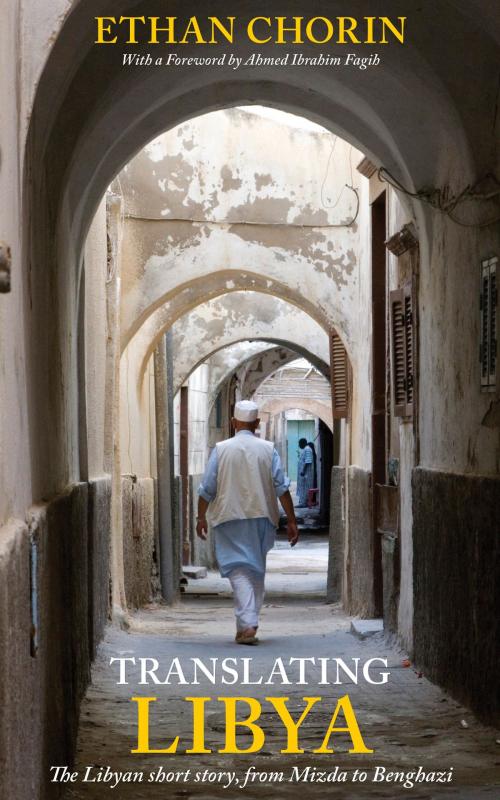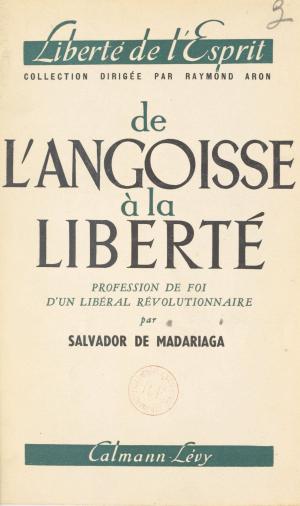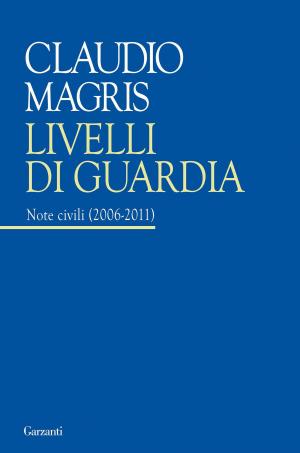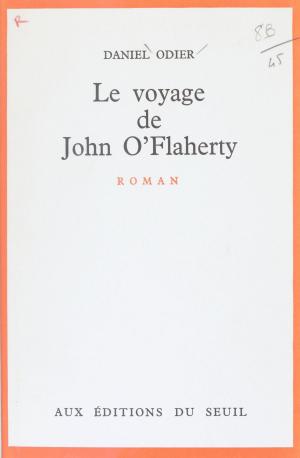Translating Libya
Chasing the Libyan Short Story, from Mizda to Benghazi
Fiction & Literature, Literary Theory & Criticism, Asian, Middle Eastern, Anthologies| Author: | Ethan Chorin | ISBN: | 9780990376668 |
| Publisher: | Ethan Chorin | Publication: | July 3, 2014 |
| Imprint: | Language: | English |
| Author: | Ethan Chorin |
| ISBN: | 9780990376668 |
| Publisher: | Ethan Chorin |
| Publication: | July 3, 2014 |
| Imprint: | |
| Language: | English |
Part anthology, part eyewitness-history, Translating Libya presents the country through the eyes of sixteen short story writers and one American diplomat.
“An excellent collection of stories as well as an insightful glimpse into what was recently an unknown culture.” - Deborah Hicks, Library Journal Review
Translating Libya, published in 2008, was one of the first books to introduce Libyan literature to an English-speaking audience. The updated 2014 revision includes a foreword by Ahmed Ibrahim Fagih, one of Libya’s most recognized authors, and a new introduction by the author, in light of the Libyan Revolution and its aftermath, which he witnessed firsthand.
Intrigued by the apparent absence of ‘place’ in modern Libyan short fiction, Ethan Chorin, one of the first U.S. diplomats posted to Libya, resolved in 2004 to track down and translate stories that specifically mentioned cities and landmarks in Libya -- and then to visit those places, and describe what he encountered there. The result is a mixture of travelogue and memoir that sheds light on the social factors that fed the 2011 Revolution, and its aftermath. The collection includes pieces from the ‘sixties generation’ of writers, as well as a newer generation of Libyan writers, including several women, writing in a variety of styles, “twisted” 1001 nights, to allegory, fictionalized memoir and overt satire.
Chorin explains how the stories, under cover of anonymity, distorted place-names and double-meanings reveal the depth of anger and despair that precipitated and fed the Arab Spring—and serve as a reminder to those who fought heroically for their freedom, that true courage springs from isolating, not repeating the mistakes of the past.
“A delightful mixture of travelogue, scholarly study and a record of personal encounters…Through the stories and his accompanying jottings and commentaries, Chorin throws much light on different facets of Libya, past and present.” -- Susannah Tarboush, Qantara
Part anthology, part eyewitness-history, Translating Libya presents the country through the eyes of sixteen short story writers and one American diplomat.
“An excellent collection of stories as well as an insightful glimpse into what was recently an unknown culture.” - Deborah Hicks, Library Journal Review
Translating Libya, published in 2008, was one of the first books to introduce Libyan literature to an English-speaking audience. The updated 2014 revision includes a foreword by Ahmed Ibrahim Fagih, one of Libya’s most recognized authors, and a new introduction by the author, in light of the Libyan Revolution and its aftermath, which he witnessed firsthand.
Intrigued by the apparent absence of ‘place’ in modern Libyan short fiction, Ethan Chorin, one of the first U.S. diplomats posted to Libya, resolved in 2004 to track down and translate stories that specifically mentioned cities and landmarks in Libya -- and then to visit those places, and describe what he encountered there. The result is a mixture of travelogue and memoir that sheds light on the social factors that fed the 2011 Revolution, and its aftermath. The collection includes pieces from the ‘sixties generation’ of writers, as well as a newer generation of Libyan writers, including several women, writing in a variety of styles, “twisted” 1001 nights, to allegory, fictionalized memoir and overt satire.
Chorin explains how the stories, under cover of anonymity, distorted place-names and double-meanings reveal the depth of anger and despair that precipitated and fed the Arab Spring—and serve as a reminder to those who fought heroically for their freedom, that true courage springs from isolating, not repeating the mistakes of the past.
“A delightful mixture of travelogue, scholarly study and a record of personal encounters…Through the stories and his accompanying jottings and commentaries, Chorin throws much light on different facets of Libya, past and present.” -- Susannah Tarboush, Qantara















